#i listen to so much songs just on repeat like. singularly. that
Text
this question for one of my assignments is so funny ( under tags bcs.. idk it's just a screenshot but i get shy w sharing stuff like this from irl ><; )

#🌙.rambles#thinking if i ramble abt wtvr in that tumblr spam account i'm trying to fix#what if i make a priv twt#n then that ffxiv account i made back in september has been untouched 😭#i'll make one for ffxiv here too >.> not a sideblog though a whole other account#n make a writing sideblog here.. i miss writing 🥺 maybe it'll inspire me who knows or i cld just share random notes#i'm rambling wait#^^ this question was for smth in philo idk Why okay but it's very funny to me#they know the stuff w twitter 💀#i'm so sleepy but every time i think of going to sleep my mind just reminds me of all the things i haven't done yet#that letter or those replies to friends or school or games or wtvr !!#I'M RAMBLING IT'S 7 AM I HAVE TO WAKE UP IN 3 HOURS?#shld fix my tumblr soon too.. i ramble so much to myself i don't really reach out to idk friends to say random stuff ngl#i shld sleep i need it so i can at least do more maybe tmrrw#randomly thinking of music i have so much thoughts right now i should REALLY sleep but damn#the way i listen to music is so weird.. sometimes i genuinely just listen to a song n listen to it for hours#i listen to so much songs just on repeat like. singularly. that#all my top songs for months or all time r seriously just filled w songs that i listen to repeat the most#sometimes i'll actually listen to a playlist but idk i constantly make new ones tied to my mood#or i'll add a lot of random ones to queue. by a lot i mean a Lot#i swear i told myself i'll go to sleep in a bit bcs i rlly need it but as soon as i moved a lil i just#remembered.. stuff i have to do. oh my god this is .
2 notes
·
View notes
Note
I loved your analysis of the Romeo and Juliet reference in Taylors song it was such a perfect example of why people praise her songwriting so much without realising how hollow it is. I also especially loved how when someone commented that they didn’t have a large enough vocab to understand your post, you actually responded really nicely and offered to explain! It’s such a bare minimum thing but so rare to see on the Internet where people often just ignore such comments or become pretentious. Anyway, definitely earned a follow because your posts seem really cool and I hope you do more song analysis posts, whether they’re praising or critiquing music.
Hello! Apologies for taking so long to get back to you! I’ve been in middle of moving (and it’s taking up much of my time ahaha). I’m glad to hear that you enjoyed my Romeo and Juliet post. I love that play- mostly because of its sly, subversive nature and social reform thematic purpose. I remember reading it in High School and how that was one of the first times I was consciously aware of the power literature holds to shift culture and move public consciousness towards progressive ideologies. Remarkable. For that reason, Swift’s repeated misunderstanding, and blatant, purposeful ignorance surrounding the plays, has always frustrated me.
I will be returning to the topic to write about the infamous “Love Story” (2009), and I’m also going to debunk a couple of her other literary references like The Scarlett Letter one. Also, I will be posting something about her bastardization of Daphne du Maurier’s “Rebecca” (1938) because she over-simplified the thematic point of the book and made it seem silly, and frivolous, instead of the hard-hitting social reform literature that it is. Much of my frustration with Swift stems from her use of literary genius, and the way she twists these stories into empty- ego-driven narratives that singularly focus on break-ups or centering her aspirations towards praising hetero-patriarchal standards in her music.
I’m fucking over it- Y'all.
She has this way of taking literary references, some of the most famous and important works in history, and remaking it into something dull, derivative and nonsensical. She incinerates the plotlines and erases the methodology of the literary work through demeaning the intrinsic social reform efforts of the works themselves. For instance, with my post on her work and the reference to “Romeo and Juliet” I mention how Swift purposely leaves out, or negates, Shakespeare intentional social reform phenomenological base to the line “O be some other name/ What’s in a name?” Shakespeare himself is clearly drawing attention to the ways in which people often judge not by the content of our characters but by shallow intonation of our names and station in society. He is using these lines, and the two characters, to show how hypocritical and judgmental it is to uphold petty difference over the ideal of believing in the prospects of human connection. Shakespeare was a radical in his day- he pulled no punches to criticizing the aristocracy or the values of post-feudal hierarchal institutions.
Swift took such an intentional aspect of his work, his social reform efforts, and purposely divorced it from the line. Thus, remaking, rewording, it into her line, which was a silly, and self-centered, petulant line about how people really should have been nicer to her because she’s a good girl. It’s so fucking stupid- imagine trying to remake Shakespeare without understanding Shakespeare. I cannot abide- now that I’m grown, and no longer a child, who could mindlessly listen to her bastardization of important literary work- I simply must speak up. It’s important because, I think, that her purposeful misuse of the work- making it devoid of social reform- says a lot about her intentions as a person. She’s not the activist people think she is- she's just another pseudo-intellectual grifter.
Anyway, I’m glad you found something worthwhile in that post- and I hope you’ve enjoyed some of my other posts since then. I admit that I sometimes venture into posting mere opinion- but for my more serious posts I will stick to interrogation of her work through literary invocation. It’s just what I know best.
If anyone has any questions about my posts- or confusions about my vocabulary use- I am happy to chat and answer questions! I really meant it when I told that person that I would be happy to re-explain using some different words. Sometimes- I get carried away and slip into “academic jargon” but that’s not what I want my blog to devolve into. I want to share information with people who perhaps have not studied literature- or English. I wouldn’t judge anyone just for having a question or being confused about a certain word. I, myself, make a habit of studying other languages- besides English- and that does wonders for keeping me humble about my own knowledge of English. Haha. :) I do not express myself nearly so well in French or German- so it becomes much easier for me to empathize with those who have a hard time expressing themselves with language too. Language is hard- learning is even more difficult. But what a wonderful, rewarding venture it is to ask a question and learn something new!
I encourage people’s curiosity- truly.
And yes- I will certainly be posting about other artists as well. Haha, now that I feel comfortable doing so- I will have some fun with it :)
Thank you for writing in- I am sending you well-wishes and good vibes.
#anti taylor swift#ex swiftie#taylor swift critical#english lit student#literary criticism#shakespeare#anti swifties#taylor swift#romeo and juliet#Rebecca#Rebecca 1938
54 notes
·
View notes
Photo

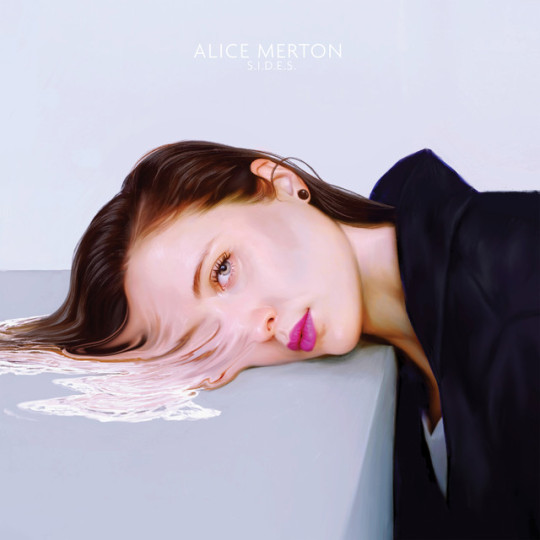

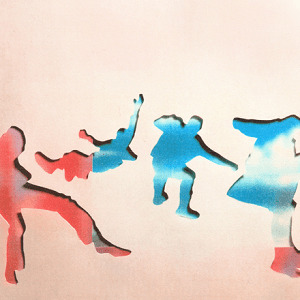

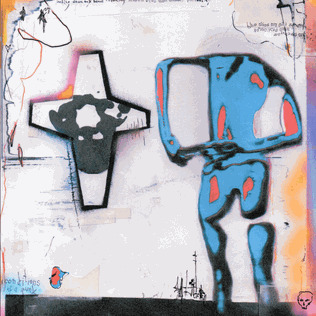
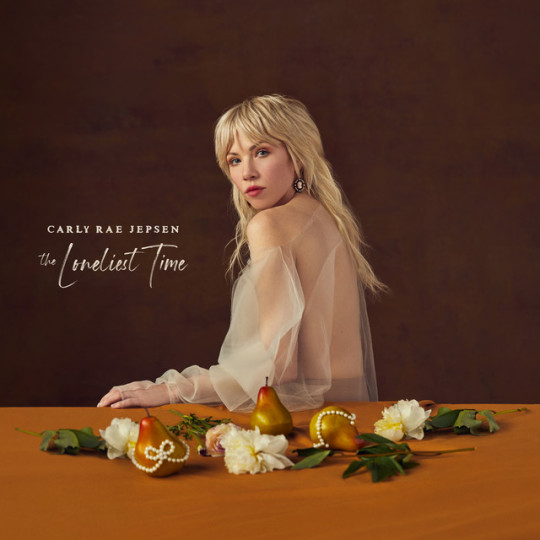
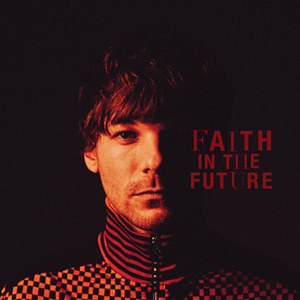


peyt’s top 10 albums released in 2022
this list was genuinely SO hard to put together!! i feel like every artist i love dropped new music this year thanks to all the studio time they had during the first couple years of the pandemic. sorry to all the great albums that didn’t make the cut - it’s not you, it’s me. 🫠
these are absolutely NOT in order because that would be an impossible task. and now, without further ado, i’ll put my rambling below:
1. give me the future + dreams of the past by bastille
i’m sure no one is surprised to see this one on my list. if you ARE surprised then idk what to tell you. this album was so surprising and different in the best way, especially after how meh i felt about doom days when it was released. thank you for the futuristic grooves mr. dan bastille!!!
top 3: stay awake?, revolution, hope for the future
2. s.i.d.e.s. by alice merton
alice was hands down the best discovery i made this year (thank you again mr. dan bastille). and just in time for her sophomore album!! it’s hard to pinpoint what really makes this album a standout for me. it honestly has it all: great vocals, honest lyrics, catchy hooks. plus alice is just so humble and so cool. how can you not like her?
top 3: future, mania, same team
3. crash by charli xcx
when crash came out, my friend was insistent i listen to it because it was “the best pop album since future nostalgia.” honestly? she was right. this is easily charli’s magnum opus. it’s so good.
top 3: good ones, constant repeat, yuck
4. 5sos5 by 5 seconds of summer
as soon as they released me myself & i as a single i knew this album was going to be It. truly their best work. one of the best parts of listening to 5sos over the years has been hearing their sound mature and this album feels like the culmination of that maturation.
top 3: me myself & i, bad omens, carousel
5. five seconds flat by lizzy mcalpine
every single song on this record feels like a hammer straight to the chest. lizzy’s lyrics are some of the best stuff i’ve heard in ages. this has to be not just one of the best albums on my list but objectively one of the best albums of the year period.
top 3: erase me, doomsday, all my ghosts
6. conditions of a punk by half•alive
they dropped half of this album back in february as give me your shoulders pt. i and at the time i was fully ready to stick that on my “best of” list - then the rest of the album came out just this month. no one is doing it like half alive. no one. they are so singularly themselves in their sound, their lyrics, and their live performances/visuals. i can’t believe they’re not being hailed as geniuses by music critics everywhere.
top 3: hot tea, nobody, make of it
7. the loneliest time by carly rae jepsen
queen carly hath returned!! once again she has crafted the perfect pop record. listen - i know i’m aromantic but this woman’s music just makes me want to be in love sooooooo bad.
top 3: beach house, anxious, talking to yourself
8. faith in the future by louis tomlinson
the main takeaway from this album is that louis really was the heart and soul of 1d’s songwriting in the later years. his sound on this record is so reminiscent of midnight memories in the best way. this is what i was hoping his debut would sound like - and while walls didn’t quite make the mark, this record most definitely did.
top 3: holding on to heartache, common people, lucky again
9. apocalypse whenever by bad suns
this record is light and fun and i love it. no thoughts just bops. while i do miss bad suns’ language & perspective era grittiness, i dig their newer sound just as much.
top 3: life was easier when i only cared about me, when the world was mine, peachy
10. cleanse by joywave
a perfect transition from possession at the start of the pandemic to now. i knew this record would be great when they dropped the every window is a mirror EP last year and “after coffee” took over my life. and i was right!!
top 3: after coffee, cyn city 2000, buy american
other solid albums that ~just~ missed out on my list:
girl of my dreams by fletcher
stick season by noah kahan
emails i can’t send by sabrina carpenter
midnights by taylor swift
sonder by dermot kennedy
what a most excellent year for music! thanks, 2022!
6 notes
·
View notes
Note
I'm listening to this amazing playlist and i can't stop thinking about Charlotte Bridgerton and Mary Sharma when listening to Marjorie. So if you're still doing Bridgerswift can we see that?
marjorie is definitely one of my favorite songs from the album and it makes me really emotional because it reminds me of my grandma. I'm so happy you requested this because I feel like there's so much love for Violet but not as much for Mary and I'm excited to explore that :)
Charlotte Bridgerton had been born into a very fortuitous life. Her parents were the Lord and Lady Bridgerton, viscount and viscountess. Her aunt and uncle were the Duke and Duchess of Hastings; another aunt was the Countess of Kilmartin. Her remaining aunts and uncles were privileged and full of the capacity to dote on her. Violet, her grandmother, the dowager viscountess, was a magnificent woman. The Bridgerton family was quite the family to be born into, and while young Charlotte would always love and appreciate them, she often found herself drawn to her mother's side of the family.
Mary Sharma, Charlotte's 'Grammary,' as she had so begun to affectionately call her when she first learned to spoke, was perhaps Charlotte's favorite person in the world.
Death was difficult for anyone to understand, but losing one's grandmother was singularly the worst experience ever for a seven-year-old girl. Charlotte would never forget her mother entering her room early one morning, gently rubbing her hand up and down her back as she spoke in a quiet voice.
"Charlotte, you know how much Grammary loved you, right?"
Many people, after losing someone that young, would have slowly grown to forget that person. Charlotte would never forget Mary.
She would always remember the way Grammary would hold her in her arms late at night and sing lullabies and whisper to her "Never be so kind, you forget to be clever. Never be so clever, you forget to be kind."
Now, as a grown woman herself, Charlotte could swear, if she didn't know better, she'd think Mary was talking to her now. If she didn't know better, she'd think Mary was still around. It was like what died didn't stay dead, not when Mary was alive in Charlotte's head.
She could still hear it now, Grammary reminding her, "Never be so polite, you forget your power. Never wield such power, you forget to be polite."
Charlotte, though it had been some fifteen years, would never forget the autumn chill that woke her up, her grandmother admiring the amber skies she loved so much, how, with their long limbs, they'd swim in the frozen water, Mary always going past where their feet could touch. Young and restless then, Charlotte would complain the whole way there, then on the walk back home and up the stairs.
Now, she wished she would've asked Mary questions, asked her how to be, asked her to write it down, should've kept every note, because every scrap of Mary would be taken from Charlotte.
She should've watched as she signed her name Mary. There was a closet of backlogged dreams, and now they were left all to Charlotte.
While her brothers aged and Mary became merely a memory, what died didn't stay dead to Charlotte. Mary was alive in Charlotte's head.
Every year when Charlotte visited Mary's grave, she repeated the mantras her grandmother spoke to her as a child and added her own message as well.
"I still feel you all around. I know better, but you're still around."
There were just some relationships that death was not even strong enough to break.
Taylor Swift Bridgerton One-Shots
#charlotte bridgerton#mary sharma#taylor swift#marjorie#bridgerswift#the viscount who loved me#bridgerton#fanfiction
15 notes
·
View notes
Note
4, 11, 16, 17, 23 for the writing asks :D
Awwww, thank you fina.
4) What are some of examples of storytelling that inspires you outside of books?
Music is a major one. I like to compile soundtracks for all my major ideas. They help me get in the right headspace and give me different ideas for scenes. I can listen to the same song of repeat for hours if its what I need for that particular vibe.
Art is another big one. And videogames, to an extent.
For the most part, anything that has the right vibe. Actual storyline’s don’t do much for me but the VIBE, the FEELING, works wonders. Bloodborn is a perfect example. It’s storytelling is fairly obtuse but it has such character and presence that it’s just inspirational. Bloodlines is like that too. The music and the feeling are so…infectious that you can’t help but be inspired.
11) If you currently write fanfiction or have ever written fanfiction, please tell us about the plot of the first fic you ever wrote?
Uh…I think way back in the day. When I was like…eight or ten, I had like. Ocarina of Time and Starcraft fanfic drifting around in my head. I even had a Starcraft OC because he was better than Jim and needed to help Kerrigan.
But the first official thing I published was at twelve at it was for the Mummy. It was absolute crack. I think they were at a museum and trying to figure out what a painting was. It was singularly bad. Like. Hideously bad.
17) At what point in the process do you come up with titles, and how easy or hard is that for you?
Never. Titles are hell. I can never come up with a title. If you’ve ever had any conversation with me while I’m finishing a fic you know that it consists of me whining about how to name things and how it’s impossible and please save me.
I have terrible titles. They are singularly bad. I tend to pick one word. One nebulous word. And then am like: sure, yeah, that fits. Maybe.
23) Okay, now that we had that nice one: what’s your WORST writing habit? dig deep, own up to your crimes.
So, at one point I had a teacher I hated and that teacher was responsible for teaching me how to use comma’s. She said I didn’t use enough commas. So I just started throwing those little bastards around wily nily. Like haha. That’ll teach you, ya old bat.
Jokes on me. I have only the loosest approximation of how grammatical structures work (I’m trying; I’m getting better?). I also tend to um…well, when I’m in the zone the words come in a torrent? So I tend to have a lot of little typos. Like excess pluralities when it should be singular.
3 notes
·
View notes
Text
A Grand Celebration: Musical Serendipity, Distant Memories, and the Preciousness of Tradition. Words on Sufjan Stevens’ Michigan
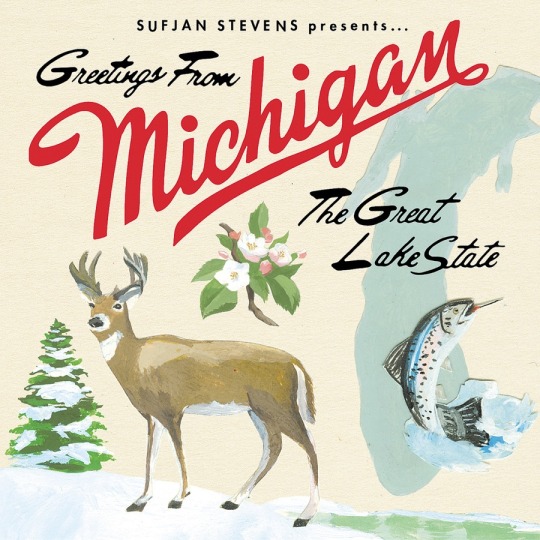
There are 48,193 songs in my iTunes library right now. That’s 5,139 albums, 336 gigabytes, and a little over 160 days worth of music. Amongst this staggering (and seemingly-unwieldy) amount of audio lies my most cherished playlist: a 20-hour-long mix creatively titled “December.”
“December” stands alone as a personal treasure, my crown jewel, and the flame that single-handedly ignites my holiday cheer. Grown and cultivated over the course of multiple years, the playlist is a wide-ranging mishmash of various Christmas albums, years-old podcasts, and even some “normal” music that I’ve simply come to associate with the holiday season after multiple years of repeated seasonal listening. My “December” playlist is a testament to curated obsession, self-enforced tradition, and the beauty of the Holiday season. It’s my Christmas spirit encased in a cold, unfeeling .xml file.
The cosmic joke is that, as much as I care for this playlist and the songs contained within it, it’s just that: a collection of random songs. Nobody aside from me would ascribe any particular value to the ordering of these tracks, but I guess that sense of uniqueness is what makes playlists such a sacred musical concept. The other thing that makes playlists so wonderful is their inherent sense of surprise and randomness: the feeling of discovery that comes with stumbling upon a great mix, or the inspiration a single song can carry that inspires you to create one of your own.
Listening to “December” has become a holiday tradition of my own, and as special as the playlist is to me, the entire thing was started by accident. Inspired by a single group of songs and a random iTunes shuffle, this seasonal institution has now ballooned beyond my control and only gotten bigger each year. This is the story of the inception of this playlist, spurred by an album that has severely impacted me and whose sentimentality has become a foundation of my personality.

Discovery
Back in high school music was my escape… not that I had anything to escape from, but music was (and still is) my reality. My one truth. Every morning as I prepared for the day I would let iTunes run through a never-ending shuffle playlist of my music library. They were my last minutes of absorption. My final escape into the realm of sound before venturing out into the world. It was a ceremony that I relished and grew to hold dear over the years.
One cold November morning six years ago, The Shuffle Gods placed a Sufjan Stevens song at the top of the queue. Back then Sufjan was a curiosity; an artist that I’d heard about and always meant to get into, but perpetually found himself on my musical “to-do” list. Thanks to an overly-eager friend, his discography had been sitting on my hard drive, in full, for around a year at that point. In a way, I suppose seeing the full breadth of his work only made diving into his music that much more daunting.
On this fateful day, iTunes DJ (rest in peace) decided that it was finally time for me to hear a Sufjan track and “Oh God, Where Are You Now? (In Pickeral Lake? Pigeon? Marquette? Mackinaw?)” began playing. It was divine intervention. It was exactly what I needed to hear at the moment, and I became transfixed. “Oh God, Where Are You Now” immediately drew me in and hung in my chest like the first deep inhale of a cold winter morning. I was so floored by the song that I needed to hear what came next. I paused the shuffle playlist and embarked upon a search to find the record that this track called home.
This excavation led me to Sufjan’s 2003 album Greetings from Michigan: The Great Lake State which I promptly queued up and let play out. Turns out “Oh God, Where Are You Now?” was track 13 of 15, so while there were only two other songs that followed, I felt compelled to see this record out to its conclusion.
The two songs that came after (“Redford (For Yia-Yia & Pappou)” and “Vito's Ordination Song”) ended up forming a trio of incredibly potent and deeply-impactful wintery songs that told one coherent and eerie tale.
If the album and songs titles didn’t give it away, Sufjan is not a man who’s concerned with punctuality. While three songs may not seem like much, this final stretch of tracks that close out Michigan ends up coming out to 19 minutes of music. Back in high school, that gave me just enough time to complete my morning routine and get out the door on time.
I became fixated on these three songs, and for the remainder of that year, they became my morning ritual. The soundtrack for two months of sleepy-eyed morning preparation. A sacred custom that I ended up recreating the next year. And the year after that. And the one after that. In fact, for years these three songs were all that I ever listened to from Sufjan’s wide-ranging discography. This 19-minutes of music came to represent the beginning of the holiday season, a near-daily habit of lovingly embracing three folk tracks from an album I hadn’t even listened to all the way through yet.

Obsession
Several years back I realized how silly it was that these three songs were the only ones I’d listened to from Sufjan in earnest. I repeatedly tried to dip my toes into the rest of his discography, and soon “trying Sufjan” became a yearly tradition as well. Year after year I attempted various entry points: whole albums, popular singles, even the rest of Michigan, but nothing ever grabbed me in the same way that those three tracks did.
Then in 2016, it happened: I became obsessed with Sufjan.
I don’t know how it happened or when it did, but it was as if a switch had been flipped in my head. Suddenly everything clicked all at once, and I found myself devouring his discography whole. I had his 5-hour Christmas catalog on repeat. I read every article with his name in the headline. I purchased enough vinyl to create a makeshift shelter. I couldn’t escape from Sufjan Stevens.
By the end of the year, I had racked up nearly 1,000 Sufjan plays, 82% of which occurred between November and December. Every listen up until that year had been relegated almost entirely to the final three songs off Michigan, but suddenly his entire discography had launched itself into the upper stratosphere of my musical consciousness.
In diving through the rest of his albums last winter I now have a firm understanding of who Sufjan Stevens is as an artist and where he sits on the musical spectrum. It turns out that he’s far from the sad, plucky folk singer that I had initially pegged him as. This year I’ve already exceeded last year’s numbers, and #SufjanSeason has become an official holiday in my house. So not only did 2016 signify a tipping point, it represented the beginning of a beautiful, rabid fandom that has opened the door to a new seasonal tradition and hundreds of hours of beautiful music. At the same time, I feel like I’ve only begun to scratch the surface.
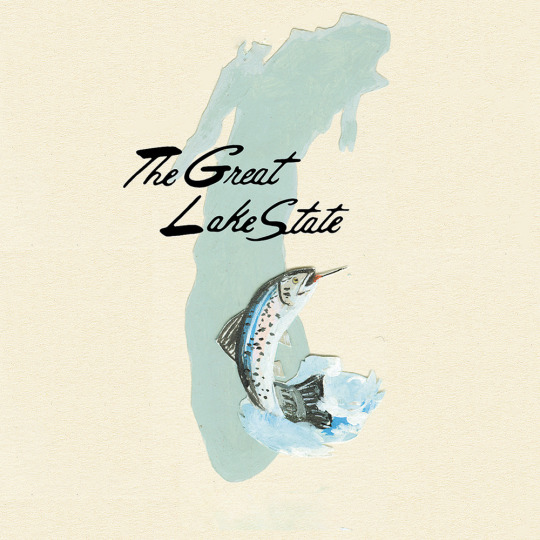
Trinity
Sufjan Stevens has arguably made two near-perfect albums: both 2005’s Illinois and 2015’s Carrie & Lowell are widely considered masterpieces of the indie folk singer-songwriter genre. The former is a multi-instrumental masterpiece that showcases an astonishing array of sounds, topics, and textures. The latter is an instrumentally-bare folk album that finds Stevens meditating on life in the wake of his mother’s death. They’re both impeccable records that are worth diving into and worthy of their status as indie essentials, but neither are what this post is for.
Despite recognizing both Illinois and Carrie as “better albums,” I enjoy Michigan more, and I’m still grappling with what that means. While these later albums either swirl and flutter to life with a flurry of baroque instrumentation, or reserve all musicality behind a single veneer of raw guitar and vocals, Michigan lies somewhere in the middle. Packed with frost-covered horns, intimate acoustic guitars, and tenderly-delivered lyrics, Michigan is a chilly, introverted, and thought-provoking record that gently congeals into a cozy wintery panorama.
Like untamed cresting hills covered by a blanket of snow, the surface of Michigan is calm and uniform; a stark, raw, and silent beauty. However, much like that bed of new-fallen snow, once you begin to dig all sorts of unknowable intricacies begin to reveal themselves. It’s a winter wonderland of crisp sounds, all delivered in a singularly-grand package. It’s an album that’s whimsical and but also grounded in dissolution and the pain of existence. Michigan is what it would sound like if the Charlie Brown Christmas special took place in the 2000’s and the characters were all listless 20-somethings without jobs.
If I were to get someone into Sufjan Stevens, I’d still probably point them to either Illinois or Carrie & Lowell (depending on their taste), yet Michigan stands alone as an understated personal favorite of mine for many reasons. Perhaps it’s just thanks to my personal relationship with the album, but accidentally falling into Michigan’s embrace over the course of multiple years has allowed it to embody every warm holiday memory that I’ve ever experienced. It’s my favorite Sufjan record, a wonderful holiday offering, and one of the best in the entire genre.
The remainder of this post is a profile of Michigan and a (near-track-by-track) breakdown of what makes the album worthy of worship. I also adore this record so much that I took it upon myself to create a bunch of mobile wallpapers, so have at them.
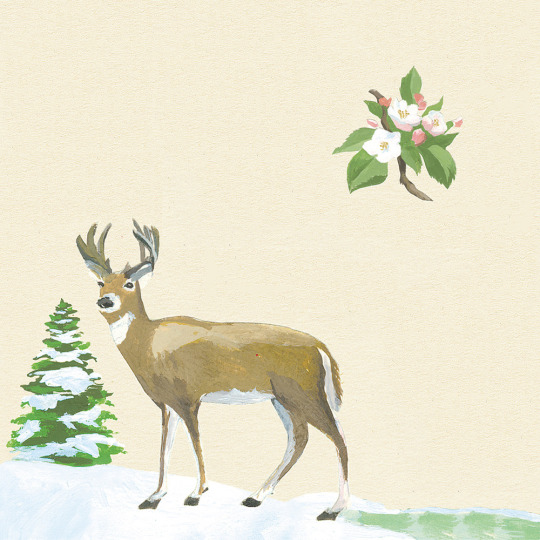
Wonderland
Cartoonishly pitched as the first album in a 50-part project covering every state, Michigan is Sufjan Stevens’ third official LP. Preceded by A Sun Came and the electronic Enjoy Your Rabbit, Michigan was far from Sufjan’s first rodeo, but it marked the first time that he seemed to land on a complete and definitive sound. Especially when compared to later albums, Sufjan’s first two outings are great, but end up coming off like a “first attempt” and a left-field electronic diversion that were merely used as stepping stones to later greatness. The entrees meant to hold us over until this: the main course.
Technically a concept album, Michigan is a love letter from Stevens addressed to the state in which he was born and spent a majority of his childhood. The album is a comprehensive look at The Wolverine State, addressing everything from the common points of reference (The Great Lakes, popular sports teams, and overwhelming poverty) to intimate portrayals of what it’s like to live there. All of these tales are sung from the perspective of someone who has a deep, personal, and profound understanding of the area which makes them feel supremely genuine and heartfelt.
Michigan’s first track “Flint (For the Unemployed & Underpaid)” kicks the album off by tackling the exact issue that the state conjures for most people: joblessness. Beginning with a series of arid, ruminating piano chords, Sufjan soon enters singing from a whispered first-person perspective that depicts a dreary future of sadness and uncertainty. Jobless and homeless, the narrator finds himself “pretending to try” but secretly resigned to dying alone. Halfway through the track, a singular trumpet pairs with the established piano melody as Sufjan repeats his death-defying mantra over and over again until the final line is cut off mid-sentence. Shortly after this abrupt end, a hum of ambient noise consumes the song, and the next track begins.
It’s a haunting piece and a stark way to open a record. Most people don’t want to think about losing their job and dying sad, homeless, and alone on the street, yet on Michigan, these ideas are not only commonplace, they're scene setting. An introduction. The first taste that transports the listener, giving them a sense of place and, hopefully, a similar sense of hopelessness that allows them to empathize with the remainder of the album. This dark opening salvo is contrasted even further by it’s following track “All Good Naysayers, Speak Up! Or Forever Hold Your Peace!” which is a jubilant and bouncy stream-of-consciousness song that explodes with a brassy baroque chamber arrangement.
Here we’re introduced to the “concept” of the album as we realize that every song is sung about the state from different perspectives. This framework allows Stevens to show both the good and bad of Michigan, rapidly shifting from broad sociopolitical issues, then zooming all the way down to hyper-detailed illustrations of interpersonal drama.
Mid-album cuts like “The Upper Peninsula” are down-to-earth groove-centered depictions of rural lower class America. Sufjan finds himself tackling divorce, detachment, and the mundanity of day-to-day life in between Payless Shoes and K-Mart name-drops. Similar sounds are later revisited on songs like “Jacksonville” and “Neighbors” off Illinois but end up focusing on much different song topics.
Even a cursory glance at the album’s credits reveal the shocking amount of instrumentation at play on each of these tracks. Sollum banjo plucks serve as the background on “For the Widows in Paradise, for the Fatherless in Ypsilanti.” Horns and trumpets emerge at unexpected times but are used so precisely that you probably won’t even notice them upon first listen. Instrumental tracks like “Tahquamenon Falls” are jaw-dropping scenic soundscapes that brim with cascading xylophone notes that dance around your head like snowflakes.
Even “traditional” folk arrangements and piano ballads have never been as poignant, soft-spoken, or heartfelt as “Holland” where single isolated piano notes poke up from a whirling frozen mass of sound. Eventually, a backtracked pair of falsetto vocals emerge to echo the song’s chorus, and it paints a vague picture of a couple singing alone in a house with nothing but a guitar, a piano, and each other nearby.
"Detroit, Lift Up Your Weary Head! (Rebuild! Restore! Reconsider!)" is the album’s sprawling ornamental 8-minute centerpiece that begins with a single, rapidly-rung bell. Soon a piano enters the mix, then a guitar, then Sufjan himself. The entire track builds around the beat of that bell until dozens of individual instruments all combine into this massive, extravagant, and decadent force of nature.
Things get personal on the banjo-plucked “Romulus” as Sufjan recounts several strained interactions with his mother even though he recognizes that he would do no better in her position. This dynamic would later be revisited and fully-addressed on Carrie & Lowell, but, “Romulus” is still a striking portrayal of a frayed relationship as well as the joys and frustrations that come along with family.
Finally, “Sleeping Bear, Sault Saint Marie” is an epic, swelling biblical track that escalates in delicate crescendos that all climax into one massive, breathtaking wall of sound. Accompanied by Megan Slaboda and Elin Smith, this late-album cut features an awe-inspiring instrumental mixture of organs, cymbals, and warm brass instruments. A careful and measured track that slows down to nothing then explodes to life.
The entire album sounds like a snow-covered log cabin. It feels like a warm cup of hot chocolate on a cold, grey, rainy day. It smells like a freshly-cut noble fir. It tastes like a home-cooked bowl of soup. It’s the warm wool blanket enveloping your body. The cinnamon-sprinkled cookies that just came out of the oven. The glowing lights that dance and twinkle above your head. It’s musical soul food. It’s wholesome and full-bodied music that makes me want to be a better person. It’s absolutely flawless.

Despair and Grace
Circling back to the jumping off point of this post: I still remember hearing “Oh God, Where Are You Now?” for the first time and being struck with a strange sense of deja-vu. The track instantly evoked something deep inside of me. It made me feel everything that I’ve described up until this point and also came with a strange sense of familiarity. It felt like a piece of a past life that I’d lost and now recovered. I carefully studied the album artwork, and it looked like a long-lost Christmas album. The majestic snow-covered pine tree, the elegant deer, the warm red lettering, all captured in Laura Normandin’s beautiful brush strokes over a rich parchment. Everything about Michigan felt picture-perfect.
After 47 minutes of splendor, the most brilliant moment of Michigan comes with its final three-song stretch that winds from “Oh God, Where Are You Now? (In Pickerel Lake? Pigeon? Marquette? Mackinaw?)" to “Redford (For Yia-Yia & Pappou)” and “Vito's Ordination Song.” These three songs stand on their own as a singularly-impactful and world-shaping experience that are intertwined with some of the fondest, warmest, and most intimate memories of my entire life.

“Oh God, Where Are You Now?" begins with Stevens addressing God directly. Paired with a barely-distorted guitar line and a gently-played piano, our narrator finds himself questioning his faith as he whispers the title of the track and begs for God to touch him. Sufjan’s voice intertwines with a hushed group of backup singers comprised of Megan Slaboda, John Ringhofer, and Elin Smith as they collectively ask “Would the righteous still remain? / Would my body stay the same?”
Soon all four vocalists combine into one extraordinary force, all singing over a sparse, mounting piano melody and finger-plucked guitar. Midway through the song, after repeating the same set of heaven-bound lines, all of the vocalists break into a makeshift wordless chorus as they sing along to the now-established tune set by the piano.
All of the instruments all flicker and shimmer as if being played from a distant memory. The piano is patient and carefully tapped. The guitar gleams and quivers, faint and serene. You can hear ambient noise trickling in between the quiet pauses as if the entire of the studio was breathing and coming to life at that moment.
Near the end of the track, Sufjan’s vocals become more prominent and press up against the backup singers as they all revisit the chorus for a third time. Soon a mighty brush of cymbals erupt. Horns emerge from the corners of the mix and play along with the group's established melody. The piano picks back up, newly energized and boisterous. Soon another pair of horns emerge and add splashes of light to the song’s bigger picture. Every element is working in tandem, taking turns, all adding on to the song’s resounding and soul-affirming chant of “La da da, da da da.”
Then everything quiets to a hum. The horns and cymbals carry the song out with long, colorful streaks. It’s both somber and gorgeous. It’s warm and cozy, a melody that you can slip away into and tuck under yourself like a blanket. A massive tide consuming your soul at a glacial pace. Then, after nine minutes and 24 seconds, it’s gone. Silence.
Picking up exactly where “Oh God” left off, the very next thing the listeners hears are the timbred piano strikes of “Redford (For Yia-Yia & Pappou).” You can make out the distant wooden creak of a chair or a floorboard, and again, your mind is transported back to a remote snow-covered cabin in the middle of the woods. Far-off vocals echo through the top of the mix like specters haunting the lone pianist. Still, the melody continues, the reflective musician is barreling towards his destination with more confidence and determination than ever before.
In the final seconds, Redford’s piano ceases and the ethereal vocals make their last wail before being claimed by static silence, and then the song ends. “Redford” is a momentary meditation before the album’s final impact. The first part of a one-two punch. A connecting piece that serves as the bridge between the album’s two defining works.
Next, the final track unveils itself. “Vito's Ordination Song” begins with an elongated and heavy organ chord, as if the pianist from the last song had suddenly been brought back to life. It sounds wholesome and church-like, evoking the feeling of both a funeral and a sermon.
Sufjan returns from the instrumental abyss and quietly recalls “I always knew you / In your mother's arms.” Swiftly navigating toward noisy imagery of marriage, happiness, and warmth as the organ continues beneath his deliberate vocals. Then after a three-song absence, a set of drums enter the fray. Booming in comparison to the sense of quiet softness we’ve been basking in over the past 15 minutes, the drum keeps time while making way for a subtle horn arrangement and heart-beat-like organ passage.
The album’s cast of backup vocalists rejoin Sufjan for one final time, duetting and echoing the same sentiments as the song’s first verse but now full and exploding with liveliness. The group of singers land gracefully upon a final chorus that ferries us along for the remaining four minutes of the album: “Rest in my arms / Sleep in my bed / There's a design / To what I did and said.”
It’s soul-crushing, heartbreaking, and beautiful. It evokes such a varied range of emotions in me that it feels truly herculean to into words. It is winter. It is Christmas. It is heavenly. It is transcendental. It is every happy moment that I’ve ever experienced over the past decade. The soundtrack to the warm memories that exist only in my head. It’s the reflection of my entire life.
The same way that you feel when you gather with your family to watch that beloved Christmas movie. The way that you feel in the embrace of a loved one. The feeling you get when leafing through an old photo album of memories now long-past. The people you spent your life with. The recipes you made together. The ones that never got to share them. It is love. It is life. It is loss. It is everything and nothing more.
These songs make me unspeakably thankful for the life that I’ve lived, and the life I’m going to lead. They are truly perfect pieces of art. To completely break the flow, I initially wrote this while listening to Michigan for the first time this year, and teared up as I wrote this... Definitely a first for this blog.
In many ways, this three-song stretch is the reason that I created this website. A location for me to document, wholly and lovingly the things that bring me unimaginable joy. The beautiful thing is, everyone has their own three-song stretch. Some little thing that makes you happy. Maybe it’s something that nobody else knows about. Perhaps it’s so esoteric that it feels silly to share with anyone, even those closest to you. But I encourage you to share it. It’s something that you hold dearer than anything else in life. A genuine treasure. A piece of your soul crystallized externally. For me, that’s Michigan. It’s a work of art, a masterpiece, and my life.

#Sufjan Stevens#asthmatic kitty#michigan#illinois#carrie & lowell#christmas#folk#music#holiday#indie#2003
1 note
·
View note
Text
Viscount of Arlincourt, The Polar Star: Second Voyage of the Pilgrim, 1843
THERE LIVED IN Paris, in the year 1822, at 54 rue de Rivoli, a woman, still young, whom Providence had filled, in certain respects, with its most mysterious favors. Her birth, her position, her accent, her mannerisms, everything in her bore the mark of something extraordinary. She was one of those chosen souls who, displaced from their sphere and reduced to a narrow and vulgar circle, cannot breathe with the ease given in high and expansive regions. Thus the rarity of their mannerisms and the strangeness of their thoughts was frightening and repugnant to certain timid and formal intelligences, who will admit into society only images engraved from the same pattern and coinage stamped the same mold. Madame de Fontry (she can be named now because she is dead) was unlike any other woman. Her existence, in and of itself, was, so to speak, an incessant communication, or rather an intimate and secret struggle between the superhuman and the positive, between the palpable and the invisible. She read the thoughts of others on the faces of each one, without it being necessary for them to speak a word. Her eyesight pierced through future ages, and when a remarkable destiny presented itself to her, she was seen to quiver like the sibyl of Cumae; it became necessary for the inspiration to be revealed; because the god spoke in spite of herself; and this god, moreover, did not belong to the darkness, because thus it could not have reigned over her soul: she was piety itself. She had seen much, listened much, and had never forgotten anything. Her memory, far from resembling a hotel where many people arrive in passing but there is never a person at home, her memory was a book constantly open in front of her, where she did not have the same need to leaf through the pages, so much were they all present. That what family did she belong? Where did her parents live? What country are the from? Where was she born? Neither she nor anyone else could answer these questions. The captain of a ship, passing one day along the coast of Senegal, stopped for a moment and landed. Walking along the shore, amidst the marine plants growing on the beach, he heard inarticulate cries. Approaching, he discovered a cradle. This cradle, elegant of form, contained a newborn child who was not of the black race. This small creature was of Christian parents, because, upon its white breast, a crucifix of ivory had been placed. Had she been baptized? How had she come to be there? The ship’s captain could never discover anything in this respect. But, taking charge of the deposit which Heaven seemed to have confided to him, he adopted the unknown child.
This first look at Madame de Fontry has thus revealed the light under the sun of Senegambia. And did she draw from that burning hot sap which must later define her, among the inspirations of her earthly existence? Undoubtedly, in my opinion, this was in part the source of the brilliant and bizarre brilliance of her imagination. Received into the most distinguished societies of Paris, at the time when I knew her, she shone there by the originality of her spirit and by the charm of her voice. A skilled musician, she composed wonderfully, and her songs had, like herself, an irresistible prestige. There was something rough, sour or bitter, and perhaps savage, in her sweetest melodies; one senses tropical fires; as if constructed by the Arab, the Andalusian, the Bohemian, and the black; and yet, upon listening to this, one is fascinated by the art. The inspiration dominates the disorder. Madame de Fontry, the first time that we met together (in 1818), had been very much concerned about me. I had not yet published any work.
“You will weep much,” she told me.
“And what fate will my writings have?”
I cannot repeat her answer. I loved life in the country. The solitude charmed me and moving seemed unbearable to me.
“I am going to surprise you,” she said to me one morning. Whatever your taste may be for the domestic hearth, you will manage and very well.”
“Really! And where will I go first?”
“To look at the polar star!”
I must start at the north.
And, in effect, according to her predictions, unforeseen events took me away from the peace and quiet of the country. I left the field and went on long journeys. Having recently returned from Holland and from Germany, the pilgrim says: “Let’s go again! Then, I was reminded of my sibyl, I had looked at the polar star; I had taken my compass and my pen; and the point of view of the traveler becomes here the title of a book.
Madame de Fontry, raised from the gap of distance in the great world before her marriage, had not taken her first steps with the crowds; hence her singular character. The childhoods that are exhausted and confounded in full society, are struck from a general imprint. We are no longer ourselves, we are everyone. We are dispersed, we are disseminated, we are dissolved in some way. The primitive flames are extinguished; the distinctive breath evaporates. One night there was a ball at my place. The rooms were full of people; and Madame Fontry, as was her custom, was studiously observing each person who entered. Suddenly, her face was troubled, a vivid emotion painted itself upon her ardent physiognomy; she called me.
“Tell me, who is this young man?”
“Which one, Madame?”
“The one who entered last, and with such elegance.”
“Who has beautiful blue eyes?”
“Exactly.”
“He interests you, Madame?”
“Very much. He is a man out of line. What an astonishing destiny! I much desire to speak with him.”
“I will bring him for you. Do you know him?”
“No, I am seeing him for the first time. Is he from an ancient family?”
“Yes, Madame. And, he has recently entered the magistracy, he begins with talent.”
“It will not last long, he will soon leave his state.”
“Why?”
“Other roads will be open to him, and other triumphs await him.”
“Which?”
“I would like to talk to him.”
“Do you find his face charming?”
“Expressive in the highest degree.”
“Perhaps he will not have much good luck: but he is loved…. And they say that he is planning to get married.”
At these words, Madame de Fontry brusquely raised her head, frowning, as if I had just stated the most unseemly and most ridiculous thing. Surprised and almost shocked, she shrugged her shoulders with a pitying smile, and answered me with a dry tone:
“He! He will never marry.”
“And for what reason, I ask you?”
“I would like to talk to him.”
It was the third time she had spoken these words, and each time with a different intonation. The first had been suppliant, and the second solemn; the third was imperative.
“Come,” I said to the handsome young man, leading him to Madame de Fontry, “I have here a prophetess who has been impressed by your appearance, and who will reveal to you your future.”
“Bah! Really!”
“It seems that it will be marvelous.”
“I am. I love extraordinary things.” Where is your pythoness? Introduce me.”
“But will you dance?”
“Not yet; I will dance after the interview.”
“Unless the interview has removed your desire.”
“Then it will be very solemn.”
The introduction took place at the gap in the corner of the room. The young man sat down with Madame Fontry with a half-mocking smile, and a half-mocking attitude. I had distanced myself, but I furtively watched them with curiosity. The figure of the prophetess, who at every moment was growing more and more animated, contrasted singularly with that of her interviewee who was gradually chilling. She cheeks were heavily colored; he was becoming very pale. The two of them it seemed to me were suffering.
Finally the conversation stopped. The young man, in standing to his feet, seemed to be pulling himself away from an extraordinary obsession.
“You have come to dream,” said I. Well then! You must dance now.
“Dance! Then you do not know what this woman has just told me? She solemnly declared that I would soon…”
“Well!”
“I will become a priest.”
“You!” I replied, with surprise. “You, already famous at the Bar! You, elegant and sought after!”
He interrupted me sadly.
“It is true. But who can know the future! I have always had religious ideas; the holy and contemplative life has always seemed to me great and beautiful.”
“Good: I can see you already taking the orders.”
“Spare me! No jokes.”
“Will you be thinking about changing your career?”
“Who, me? Oh, not for the world.
I do not know how many months passed after that conversation: but one day I received from Paris the following news:
“A young magistrate, one of the most distinguished, has not embraced the ecclesiastical state; he will make a name for himself there, without a doubt.”
He is the abbot of Ravignan.
—————
How many years have passed since then! How could I not have remembered the predictions of Madame de Fontry, while I was traveling to Russia, and upon writing the “polar star” as the title of my new book! The polar star! It was one of the first foreign decorations that I had carried upon my chest: the Swedish had attracted me to her. Oh! What bitter pains had come to strike my life since that time when Madame de Fontry had addressed to me these words: “You will travel, and much!” The same voice that had promised a glorious destiny to the young Ravignan, had predicted a life of suffering for me. The two oracles were to be fulfilled. I still see this extraordinary woman, glancing sadly at my beloved daughter, murmuring these verses in a low voice:
“And pink she will live the way that roses live,
For the space of a morning.”
What tempests have assailed me! Alas! The moment they reached me, I told myself: “No one was ever more cruelly beaten!” Error! I have meditated since then. I have observed in my travels; in growing old I have compared; and I have recognized that at the bottom of human destinies, in that these are miserable, is nearly the same everywhere. Thus, this illusion of pride that made me think that I was the object of singular fatalities and of exceptional torments, this disappointment of a black blindfold, this flattery in robes of mourning, I have seen it escaping and I have lost it. Regretfully no longer among so many others! Oh! Is life only a long series of disappearances, is there anything else here below, other than a continuous farewell!.... I was going to leave for Russia, when a dreadful catastrophe occurred on the railroad at Versailles, bringing consternation to Paris. Who will not always remember that night of appalling memory, when all of the joyous and well-dressed crowd of people, returning from a day of festivities, were suddenly tossed around, mutilated, crushed, and burnt in a tempest of fire! The fire of Hamburg added its lamentable stories to those of the wagons of May 8. When I departed I was profoundly sad.
And nevertheless, only a week before, I had only happy thoughts: so goes life in this world, the laughter and the tears follow upon one another. I was in my dressing room at the comic opera, with the Count and Countess of Steinboch. The count is one of those lofty and powerful lords of the Baltic shores; I had known him at Wiesbade, and we were bound by ties of affection.
“Come see us in Estonia!” the smiling countess said to me.
“At the sixtieth degree of latitude!” I replied. “Well, then!”
“Do not forget your promise. You will be with us this summer at Kolk Castle.”
“And this castle is located…?”
“Four steps away…. From Finland.”
“It is very near… but not Paris.”
“Goodbye, then!”
“It is agreed. On the Baltic coasts, four steps away… from Finland.”
— — — — —
On Saturday, May 28, 1842, I had traversed France and Prussia. I was descending the Rhine river on the steamer Drusus; I arrived at the home of baron de Heeckeren at Enghuisen, at the beautiful castle of Sonsbeck, near Arnhem; and I was ....
0 notes
Text
Hospice Turns 10: A personal reflection on The Antlers' desperately intimate masterpiece, then & now
Hospice means a great many things to a great many people.
Thought of as The Antlers’ debut by most, to be fair, it was the project’s first iteration as a proper band, but leader Peter Silberman had in fact toiled on two albums under the moniker, on his lonesome, prior. Still, it felt, and still feels, like the proper realization of a vision, numerous in influences, yet a stark, pained masterpiece all its own.
It was one of those special albums: somehow, its audience seemed to immediately gravitate towards it, discovering a still unsigned band. Moreover, it proved one of those precious, rare occurrences: so deep in its convictions, in its tortured, brutally intimate sense of realization, that near anyone you might meet who adores Hospice feels convinced the album was meant to talk to them. So much did it shatter hearts, and speak to whatever a desperate listener may have been going through in 2009, how could it not have been?
I had just turned 20 not but 3 days prior to Hospice’s release on March 23, 2009. I cannot recall if I heard the album then or later. It wouldn’t matter, as it would become so consumed in what was to shortly follow. A few weeks later, my friend, and long time crush, would be murdered.
All music became about her, or rather, about myself. LCD Soundsystem’s ‘Someone Great’? Goes without saying. The Hold Steady’s Almost Killed Me? Surely that summer might have. My lack of desire to eat, while I sat in a La-Z-Boy binging Buffy the Vampire Slayer to get by between bouts of moaning and mourning, so malnourished I grew entirely lightheaded from a single cigarette, barely able to muster the energy to stumble towards a daily shower. Even Eminem’s largely dismissed Relapse found a home in my emotions, his violent, pained tribute to slain lifelong friend Proof, reveling in his darkest impulses, twisting formerly clever humor into something vile and sad, spoke to my worst moments at the time. ‘Beautiful’ may have felt heavy handed to some, but it hit me with a wallop on the regular.
Yet, nothing stood above Hospice. Silberman may indeed have intended the album to reflect an abusive relationship, and even the concept album’s literal story had far more to do with cancer than murder, but anything so powerfully, singularly focused on a feeling of loss was always going to devastate, and dominate, my young world.
‘Bear’, arguably the album’s solitary, relative bright spot, didn’t do much for me at the time. I do recall thinking the repeated, “We’re not old at all”’s would impact me more some day. What a young little fuck. As I write this, preparing to turn 30, the words do plenty.
At the time, the album’s deepest valleys were where I preferred to reside. ‘Two’ could reduce me to near nothingness (“When we moved here together we were so disappointed / Sleeping out of tune with our dreams disjointed / It killed me to see you getting always rejected,” still hits with brute force to this day), while ‘Wake’ allowed me to claw towards some sense of soldiering on.
Revisiting the album this past week, out of a desire to honor the album’s turning 10, and perhaps as an excuse to re-engage with memories I don’t often touch, brings about odd feelings. The abusive relationship angle speaks more to me now. Aside from actually having experienced love beyond longing, I cannot help but still frame the album around a friend lost. Yet, whereas I once single-mindedly viewed the music as speaking to the pain of losing her, I now hear my still childishly creative self, writhing; dying. The words of 'Epilogue' remain ever the same, but who I see in them has changed: "I'm trying to dig you out but all you want is to be buried there together." I can now see myself, all of us, channeled within the album, as both abuser and victim. Friendships devolved, a tragically petty squabble of who truly knew her best, who deserved to be broken, and who was presumed to be putting on a show. For years, I held this against some, but listening to Hospice now, I only hear scared kids, dealing with death, and processing pains they had no capability of mastering. Abusers all, of our friend’s memory, and perhaps most sadly, ourselves. Try as we might, selfishness seeped into everything, and if there’s anything Hospice understands, it’s that. It has sympathy for us all, even at our worst, and I imagine it’s herein so many have found music that speaks to them.
The music is as powerful as ever, yet as the albums that impact us the deepest often do, it’s fossilized in 2009. This isn’t to say it hasn’t aged well, quite to the contrary, as the indie zeitgeist rather long since jumped ship from the sound that bands of The Antlers’ nature peddled, it feels perhaps fresher than ever. It feels a bit silly now, that I made these songs so about me, yet as I now hear them so removed from my own experiences, it simply deepens my appreciation for how grippingly the band realized these songs, so as to allow any listener to see themselves within their downtrodden world. Still, I can’t help but feel I’m viewing these songs through a fogged window, flailing for feelings I’m no longer vulnerable enough to truly understand.
This only makes Hospice all the more valuable. I may be a bastard of an aging hipster, but so long as these sparse, bruised, painfully honest little songs exist, I can remember that I was indeed a kid with all these damn feelings, that I lived through, yes, the best of times, and certainly the worst of times. An abusive relationship indeed: where I once only heard helpless, sympathetic pain, I'm now wise enough to hear the self-obsession and even cruelty lurking beneath. Hospice is a passage to an era that you couldn’t pay me to relive, yet I’ll never leave behind. Nor would I want to. I imagine I’m not alone.
from The 405 https://ift.tt/2un8U07
0 notes
Text

Hi. Thanks for visiting! I’m abby 🙂 …
I dabble in drawing, photography, and various conglomerations of the two. call these things “Art,” call these things pseudo “art-esque” doodlings, call them “art, my-arse” utterly meaningless deductive drivvel.
Call it what you will, essentially. But-Whatever sort-of image happens to strikes your soul, your fancy, your heart, your whatever part that most purely resonates-like a bell ringing true deep within you- i think this is real art.
And whatever rare, precious image takes you aback, leaves you in awe, or just genuinely makes you feel, anything at all- in a way that stirs some lost, forgotten, or yet-to-be-discovered beauty deep within you to awaken, to be-moved, to arise wide-eyed from the darkling still of our soul’s dimminuendo towards sleep- i think this, too, must be true art.
I think it’s a question of who you are and what captivates you- what invokes a sense of connection, awakens a feeling, causing some hardened-part of your heart to crack- just a little…just enough to let a little light shine-on… You crazy diamond, you : )
When an image intuitively resonates with you, in a way that, for a few seconds at least, alters the shape and shifts the light of your inner landscape…making you feel something, or anything more deeply, i call that art.
My underlying issue here, is that i could never just proclaim myself to be an “artist.” It’s not really a self-issued title, i don’t think. or a “Hello! I’m ____” fill-in the blank sticky-label. But people do it. A lot… Maybe i need a healthier ego.
Or maybe i need to stop quibbling over abstract semantics & direct my squabbling towards greater concerns; it might be nice if, like maybe we could eventually get-around to freeing Tibet…just for example. But i mean, god-forbid no-rush or anything. Just- nevermind. You get my point…
again, a big thank-you to everyone (if indeed, there is anyone) which i realize there probably isn’t, and i’m talking (like a mental patient) to myself, and to no one…
But! I’d like to hope that somewhere out-there listening is ONE…just ONE, similarly strange, singularly lovely, and utterly extraordinary SOMEbody.
YOU ‘Somebody,’ mean more to me than ANYbody,
So thanks, buddy 🙂
.abby :.
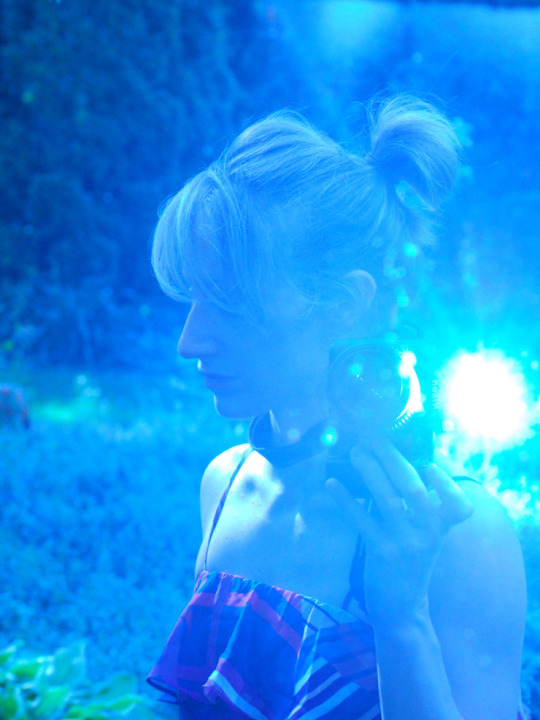
“…still, what i want in my life- is to be willing to be dazzled. To cast aside the weight of facts,
and maybe, perhaps- to float
just slightly above this difficult world.”
Mary Oliver
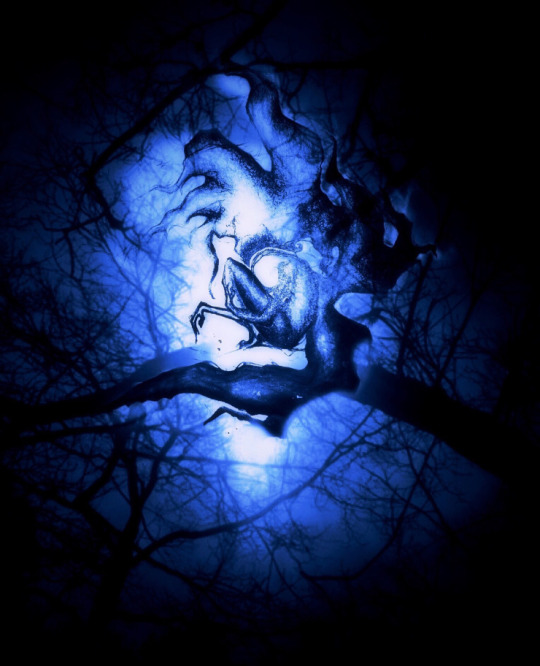
hi there, and welcome!
kind and curious stranger. i’m abby 🙂
thanks so much for stopping-by.
…Here’s some of my artwork : )
and my many, many (indeed, perhaps- TOO many…?) pretty-random thoughts and feelings,
…expressed predominantly in Rhyme.
Yes. I repeat: i have an unconscious tendency to slip into what i desperately hope can sometimes sound pseudo-poetic, but what i suspect comes-across as more DR. Suess-like rhyme-speak. Now, you might be asking yourself “i beg your pardon?” Or “what on Earth is this girl even talking-about?” or some variant thereof. And trust me, i’m right there with ya. I hear you and i empathize completely. I just wish i could help you-out. I really, really do.
So here is my official “fair forewarning”
beginning with a disclaimer: sometimes when i write, i start unconsciously rhyming all my sentences. It can get weird sometimes… that’s the worst-of it: you might think “this is weird,” which in-turn might make you feel similarly weird and slightly awkward reading it.
At best, it’s mad-genius. At other-times, it is… quirky? devil-may-care whimsical? manic-pixie-esque self-actualized? um… i don’t know, cute? […please mentally insert appropriate adjective of your choosing, here: ____ ] oh, i almost forgot to add the requisite “it isn’t my fault” line. Ha. no but seriously, it’s not. it just seems to happen. its like a nervous tic, or a lisp…a silently typed “typo”-version of an insthurmountable,
insthidious
insthatiable
lisp.
Right… so it’s a bit like a lisp.
except not at-all… for extremely obvious reasons. most notably: because, instead of having a truly adorable speech impediment due to a massive overbite that is nonetheless doomed to be obliterated by an absurdly expensive onslaught of orthodontic medieval torture at some point during childhood, i have already HAD braces. tra-la-la.
But, more importantly, my issue has absolutely nothing to do with lisps or braces but with an insatiable, mostly unconscious, tendency to fall into Dr. Suess style rhyme-scheme whenever i write with some lofty, overarching intention (the irony here has not eluded-me) of attempting to express something i feel deeply and/or passionately about- regarding things i believe, or how i see certain things,or a part of myself that feels somehow inextricably entwined with the roots of something much greater and wiser than i could ever be.
So, basically whenever i desperately want to communicate a real and honest feeling to other people- i tiptoe-backwards in time to a memory of some half-whispered song and an oceanic sway, where things felt safe- in that rhythmic to-and-fro place of breath, heartbeats, all in-sync with Kaos and harmonized with some great Symphony.
So, here is a final, friendly fair-forewarning:
There Will Be Rhymes.
and so, this is probably the reason why, sometimes, i wish words just didn’t exist-
that we could rely on some other, silent form of communication. Like…
we could converse via full-body dance charades,
or we could speak – but only in Middle English, and only vicariously through sock-puppet avatars,
or life could be one epic game of meta-pictionary,
or, we’d learn to communicate via silent emanations of Soul-Speak; intuitively conjuring symbolic imagery through some combination of creative forces, like whatever maybe happens in a college “Improv 101” class…
except we’d learn to cast ciphers in shadows by firelight, on a stage in some surreal dreamlike theatre infamous for its dedication to a single show, something with a strange and alluringly avant-garde title like,
“In The Silence of Ciphers: Plato’s Cave of Shadow Puppetry.”
But sometimes i just wish i could hear, for a little-while at-least, that truly ancient and long-lost Silence.
Before Man came along with language and his constant chatter of words,
and seeing-as how divinely complete the whole celestial orchestra seemed to be,
the cosmic design of harmonic synchronicity (they had it all-down to a perfect T)
we just couldn’t resist. We HAD to ruin-it,
with our out-of-sync and off-key lil’ doggerel ditty-
our dying cattle, death-rattle-like cry,
resounding straight-up
to Quintessence and back- in atonal unhindered cacophony:
We just had to shatter that silence.

So there you have it.
Sigh… epically. (One must ALWAYS sigh epically.)
anyway, i hope you enjoy my art (and aren’t too terribly irritated by all my silly writing, pseudo-poems and general glossolalia). But i’d love-it if you stayed awhile and took a look around.
I hope you leave here in a better mood than when you first entered. I suppose that’s probably a part of what i’m hoping to do here. because sometimes, feeling “better,” or even, sometimes… just trying to stay in the relative-range of “basically okay for the time-being,” are not always so easily grasped. Especially without other peoples’ help.
so, i wish you the very best of luck- wherever you are out-there in this wildly bewildering world, wandering the earth with all the rest of us strange, beautiful monsters. again, thanks so much 🙂 – abby *
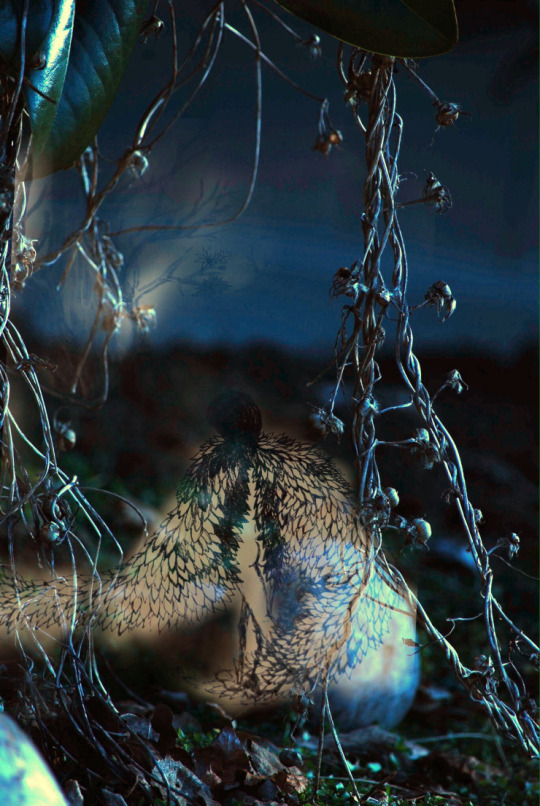
Note: This is a poem. Hence, the rhyming-thing is entirely intentional. Just in-case you started getting nervous 🙂
We may so often glimpse,
but so rarely can we hold
these ciphers cast in amber-fire dayglo.
shadows perceived as mere hypnagogic echo-light ,
for insight speaks a language known only by the soul-
symbols still-framed in flash-bulb brilliance-
like a moth’s dazzled gasp, or a pale-fire ghost,
hoping to re-ignite those wide-eyed-fires our hearts ache for the most.
those things we had that made us happy,
so very long ago,
those things we lost somewhere back there,
or left behind? cast aside? Did we spare a blink before releasing our hold?
were we ever SO young- too young to regret our unscathed hearts yet to start bleeding,
when we were whole, unbearably light, and life felt breathless and beating,
and there was a restless beauty awaiting discovery,
a sense of grace in all of life’s unknown-
but now looking-back, we shoulda coulda woulda really wished we’d known:
that there are parts of life you must cherish- certain things you don’t let-go
…and the rest of life? These other things are best held lightly-
all-things fade, “mono no aware,” “this too shall pass,” so
“go with the flow,” read “the art of letting-go,”
learn to distinguish the sound of your voice from impostors of ego.
but amidst all of this letting, losing, going, flow, there’s one thing our hands must hold,
never let Who-You-Are fade-away or slip from your grasp,
keep it clasped tight to your chest- because once it’s gone, you can’t get-it back.
It’s these precious unspeakables that slip-away so silently,
without the slightest “peep,” this moment of our heart’s detachment,
the moment we stop “Seeing” and the soul falls asleep,
but some of us get lucky enough to fall-
fast and far so finally to break
(it has to be hard to re-start the heart and slap-us awake)
That’s when we get that second chance-
numbness gives way to melancholy, a newfound “dust as quintessence,” kind-of human empathy.
an empty ache shaped by the contours of absence.
That’s the Happy Ending, anyway. But its the only end i can envision,
for some it takes a lifetime, to end at “Happy” once again-
….for others, merely an instant:
a disaster, a loss, some miracle or gobbstopping vision,
and that’s all it takes for us to fall, to break, to splinter
like a singular beam of pure-white light suddenly crashing through a prism-
to awaken as from a dream fractured- a kaleidoscopic collision
a rainbow awaits at the end of every catastrophe,
to glean from the wreckage still-reeling-
its the BEAUTIFUL DISASTER reflected in our mirrorball shattered
that bewilders and delights and creates us anew
blinking-awake with the dazzle of light that seems to illuminate,
or even originate- somewhere inside you.
in the end, what we deem “True” is at the mercy of hope-
a force that is truly unstoppable-
for at heart, we’re all visionaries, creators, and dreamers
our imaginations careen beyond logics’ brink to dream the impossible-
So-moved are we all by these God-lights colossal,
that we can let-go for awhile of our “all-too-human”
hold on so-called truths before we turn
towards the unbounded numinal-
to spin-up and out of ourselves in becoming something Chimerical
something weightless, winged and Greater than ourselves
overtaken by wildness once-more for a momentary miracle,
as brightly-glanced will-o-the-wisps,
wild and flying in breathless hope upwards,
Up, Out. and Gone-
with wild-eyes’ hypnotized in hope and blinding bright-sight of the Luminal..
Boo-ya.
i.e. “The End.”
And Now . . . More Artwork. By Me. Abby.
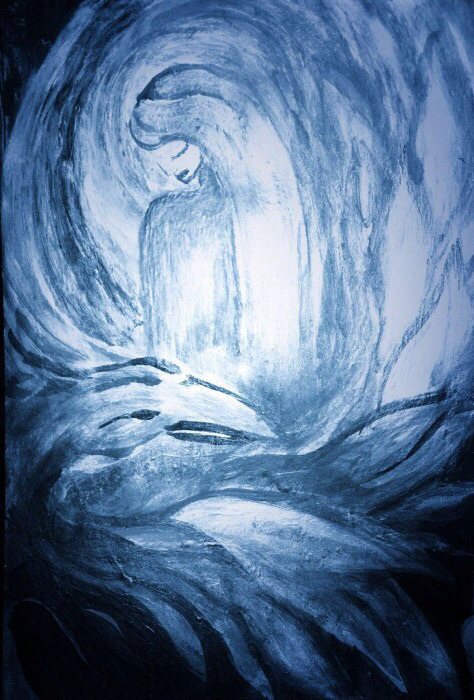
Quoth The Raven, ” Why, Hello Lenore.

The Abandoned Planet of Microscopia

Empathy
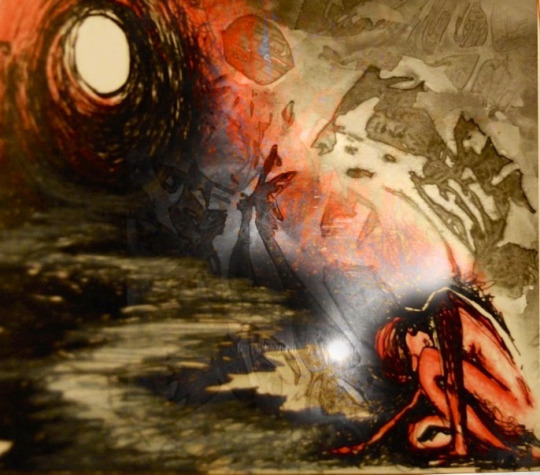
” Do not go gentle into that good night, Rage-Rage, Against the Dying of The Light. ”
-Dylan Thomas
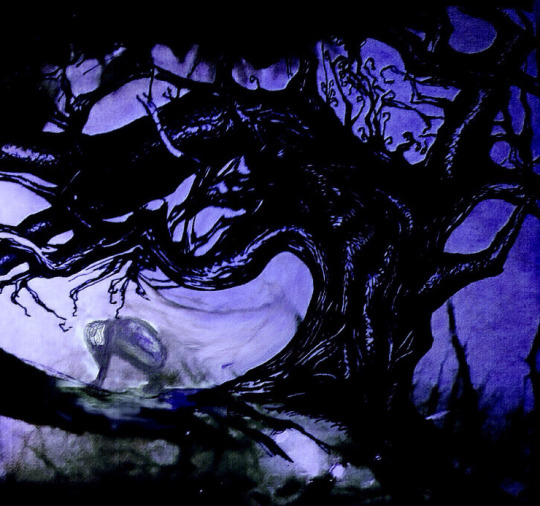
“There is no language for our pain…only a moan.” -Jerome k. Jerome
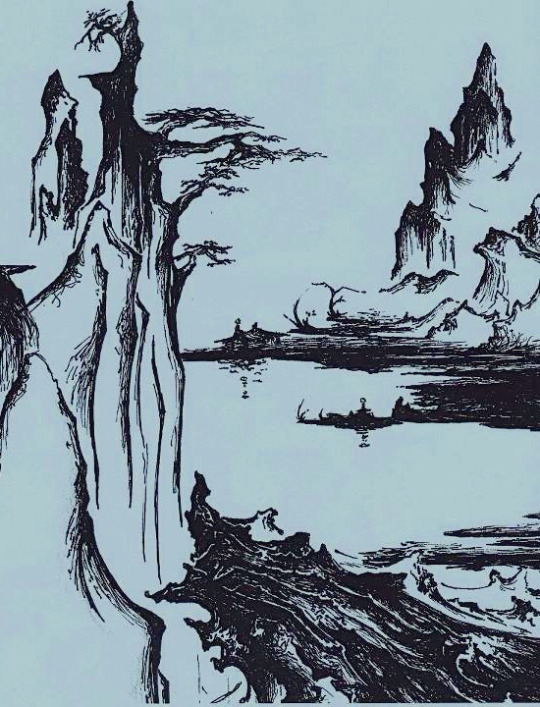
“Mono no Aware”

” this is the root of the root, and the bud of the bud
and the sky of a sky,
of this tree called life- which grows,
higher than mind can hide or soul can hold.
and this is the wonder that is keeping the stars apart-
i carry your heart ( i carry it in my heart) ”
– e.e. cummings
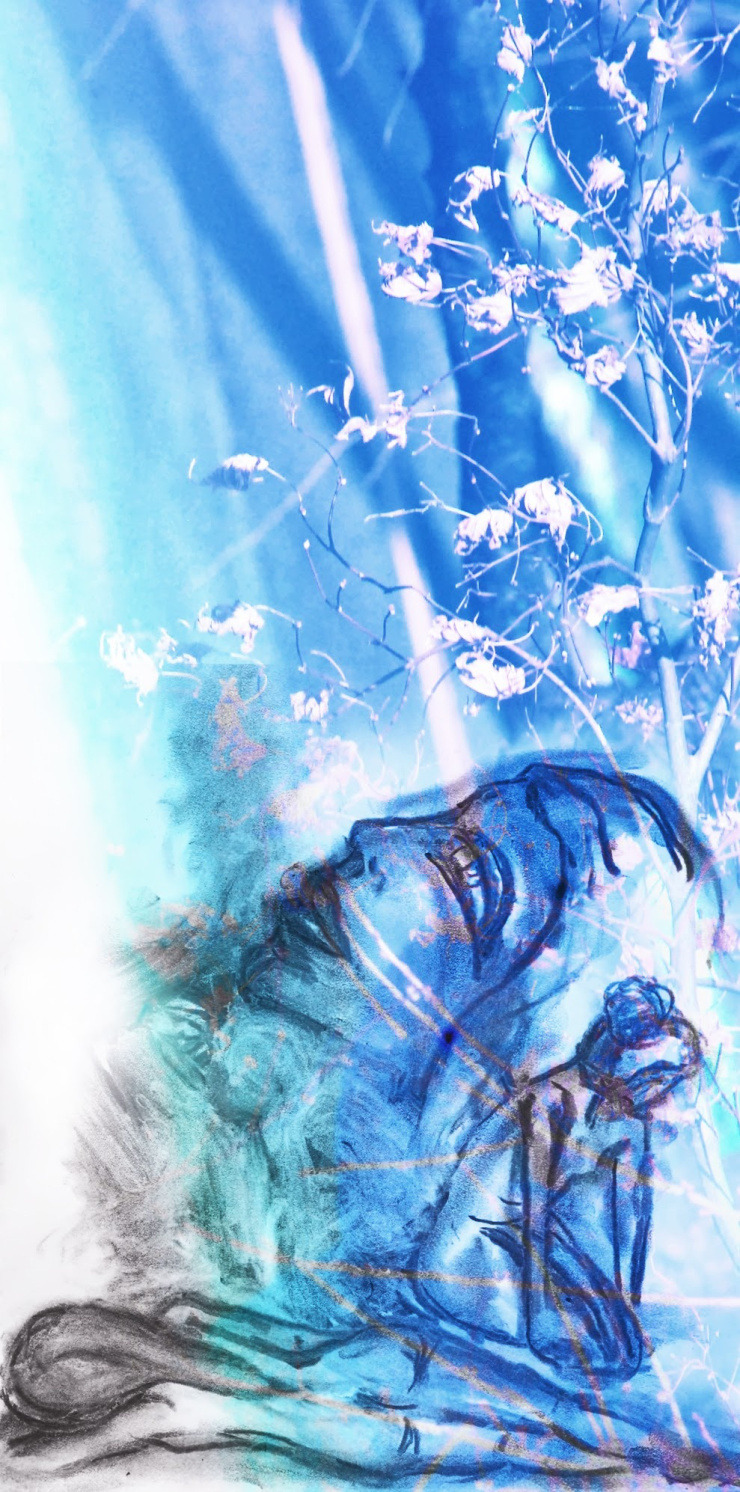
Hope…
Hullabaloo. Hi. Thanks for visiting! I’m abby 🙂 … I dabble in drawing, photography, and various conglomerations of the two.
0 notes